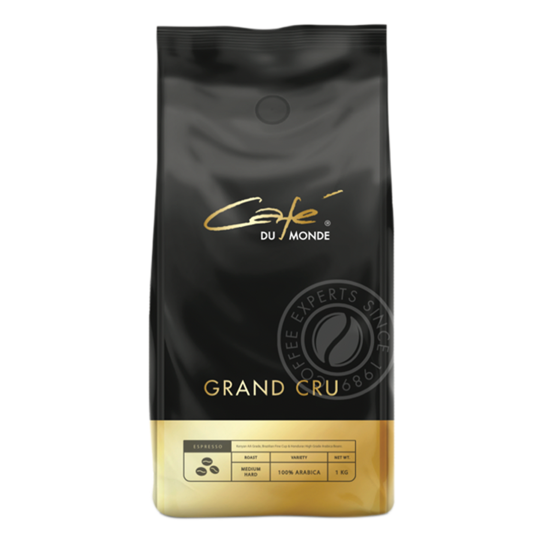
Grand Cru Espresso Beans
This is our 100% Arabica espresso coffee blend. It has the best Kenyan AA Grade beans for acidity, citrus notes and a chocolate after taste.
View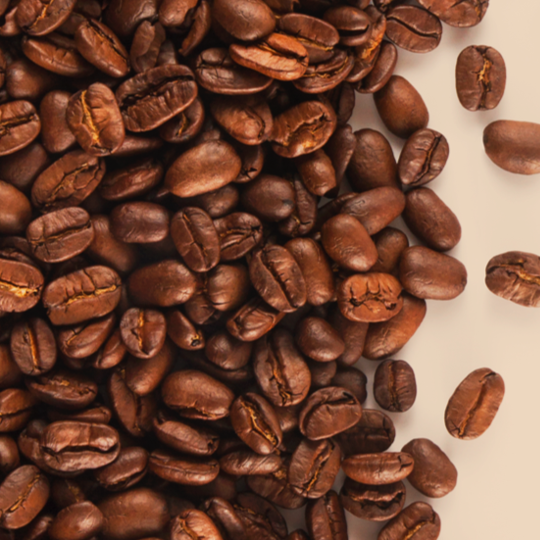
Coffee bean grading is a rigorous process that involves cupping, visually inspecting and screening various coffee beans to assess the quality, flavour profile and area of use. At Cafe Du Monde, we ensure each of our coffee beans undergoes efficient grading and is categorised accurately for the most balanced and consistent cup every time.
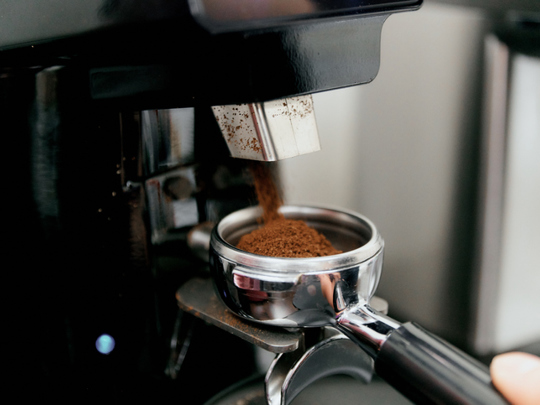
Coffee bean grading is the process of evaluating the quality of coffee beans based on their physical characteristics, such as size, defects, moisture content and cup quality. Coffee beans are typically graded by trained professionals using a variety of methods, including visual inspection, screening, and cupping.
There are a number of different coffee bean grading processes used around the world. However, most grading processes involve the following steps:
Visual inspection: The coffee beans are visually inspected for any defects, such as black beans, broken beans, or mouldy beans.
Screening: The coffee beans are screened to separate them by size.
Cupping: The coffee beans are cupped to evaluate their flavour, aroma, acidity, and body.
The specific grading criteria and methods used can vary depending on the grading system being used. For example, the SCA coffee bean classification system uses a different set of criteria and methods than the Colombian coffee bean grading system.

SCA coffee beans classification: The SCA coffee beans classification system is one of the most widely used coffee bean grading systems in the world. This system divides coffee beans into five grades based on their physical defects and cup quality.
Colombian coffee bean grading system: The Colombian coffee bean grading system is another widely used coffee bean grading system. This system divides coffee beans into four grades based on their size and physical defects.
Brazilian coffee bean grading system: The Brazilian coffee bean grading system is a complex system that takes into account a variety of factors, including the size, defects, cup quality, and moisture content of the beans.
Central American coffee bean grading system: The Central American coffee bean grading system is similar to the SCA coffee beans classification system, but it has a slightly different set of criteria for grading coffee beans.
To grade coffee beans using the SCA classification system, a trained grader will first inspect the beans for any physical defects. The grader will then screen the beans to separate them by size. Finally, the grader will cup the beans to evaluate their flavour, aroma, acidity, and body.
The SCA coffee beans classification system is a valuable tool for coffee roasters and regular coffee consumers. It helps roasters to source high-quality coffee beans and it helps consumers to choose coffee beans that will produce the best cup of coffee.
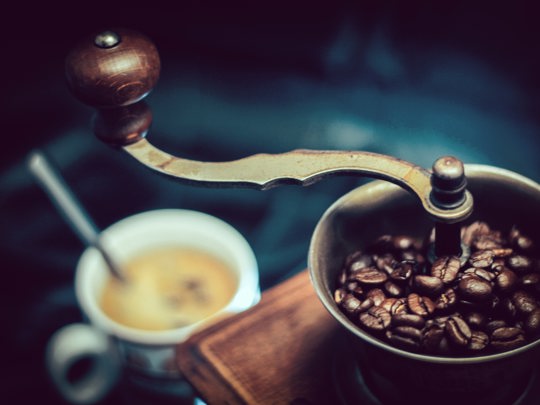
The Specialty Coffee Association (SCA) classification system is one of the most widely used coffee bean grading systems in the world. The SCA classification system divides coffee beans into five grades:
Grade 1: Specialty Coffee Beans - Specialty coffee beans are the highest quality coffee beans and are typically used by speciality coffee roasters and cafes. Speciality coffee beans must have no primary defects and no more than 5 full defects per 300 grams, and they must score at least 80 points on a 100-point scale when cupped. Specialty coffee beans have next to zero percent chance of insect defects too.
Grade 2: Premium Coffee Beans - Premium coffee beans are high-quality coffee beans that are typically used by commercial coffee roasters. Premium coffee beans must score at least 80 points on a 100-point scale when cupped. The only difference between Grade 1 and Grade 2 beans is that these beans can have up to six defective qualities, as opposed to the three defective qualities in Grade 1.
Grade 3: Exchange Coffee Beans - Exchange coffee beans are medium-quality coffee beans that are typically traded on commodity exchanges. Supermarkets often use this variety of coffee beans and it is acceptable to have between 9 and 23 full defects in them.
Grade 4: Standard Coffee Beans - Standard coffee beans are low-quality coffee beans that are typically used in blends and instant coffee. Standard coffee beans are expected to have anywhere from 24 to 86 full defects per 300g.
Grade 5: Off-Grade Coffee Beans - Off-grade coffee beans are very low-quality coffee beans that are typically used for non-food purposes. Off-grade coffee beans may have a high number of defects (more than 86 full defects per batch), or they may be damaged or mouldy.
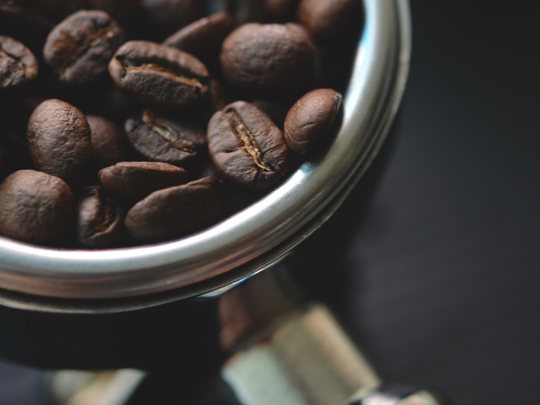
At Cafe Du Monde, we sell a wide variety of fantastic quality coffee, so you can enjoy a perfectly rounded and full-bodied cup at home, whenever the craving calls.
We’re purveyors of flavour and only sell the very best quality coffee. We sell 100% Arabica espresso blend, AA grade beans for acidity and citrus notes with a delicious chocolate aftertaste. This grade of coffee beans features Brazilian Fine Cup beans from the Minas Gerais Plateau to give a full-bodied nutty base and high-grade arabicas from Honduras to add fruitiness and a subtle sweetness.
The Premier Cru espresso blend is another fantastic choice. For this blend, we use Brazilian Fine Cup beans from the Minas Gerais Plateau, Ugandan robustas from the Lake Victoria region, arabicas from Honduras and Bourbon varietal Arabica beans from the Award Winning Rain Forest Alliance certified Café Monte Sion Estate in El Salvador.
And finally, the Fairtrade Premium espresso beans are a full-flavoured espresso with a delicious aftertaste. This blend uses a mixture of South American and African beans. Santos from the Coocafe Cooperative in the Minas Gerais region of Brazil and Robustas from Tanzania give a punchy, earthy and subtly sweet base to the blend. Colombian Excelsior beans from the renowned Cosurca Estate and Costa Rican beans from the Cafecoop Cooperative add sweetness and fruitiness.
Browse our website today and find your preferred coffee blend, sift through our recipes, and learn a little more about the art of crafting (and loving) delicious coffee.

This is our 100% Arabica espresso coffee blend. It has the best Kenyan AA Grade beans for acidity, citrus notes and a chocolate after taste.
View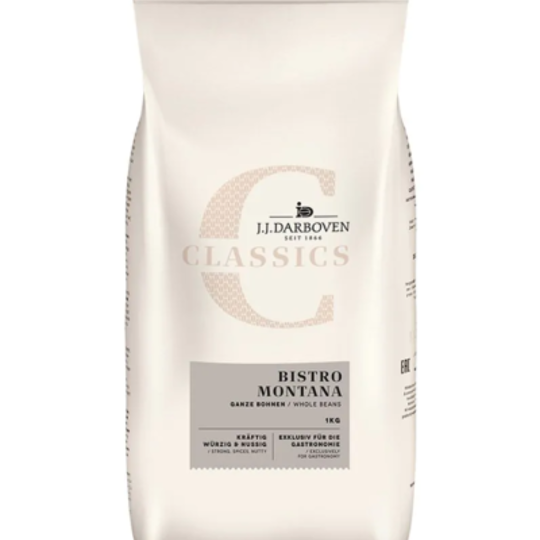
Nutty-chocolate aromas, a hint of fruit, balanced acidity, and a smooth, full-bodied finish. Robust yet refined, this is coffee that speaks many languages—and all of them delicious.
View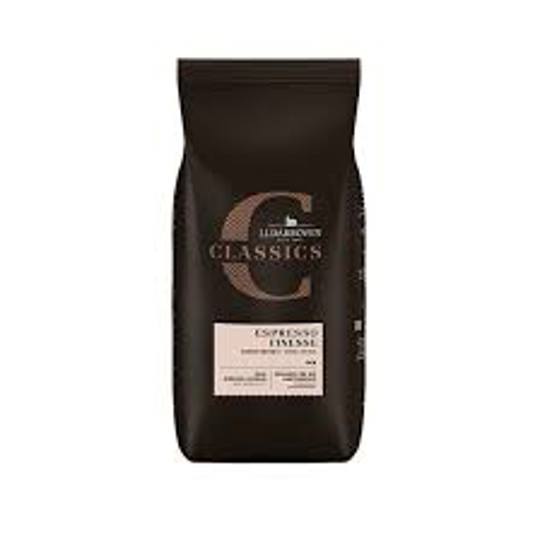
A bold and full-bodied blend crafted for espresso lovers who crave depth, intensity, and crema-rich perfection.
View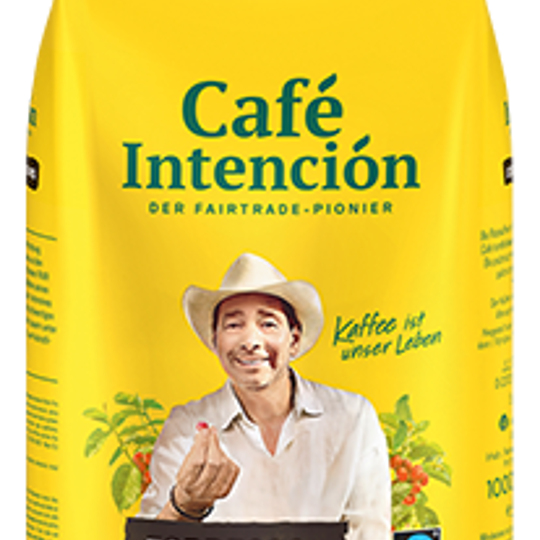
A high-quality bean blend, composed of Arabica beans from Central and South America and spicy, high-quality Robusta beans from Africa and Indonesia.
View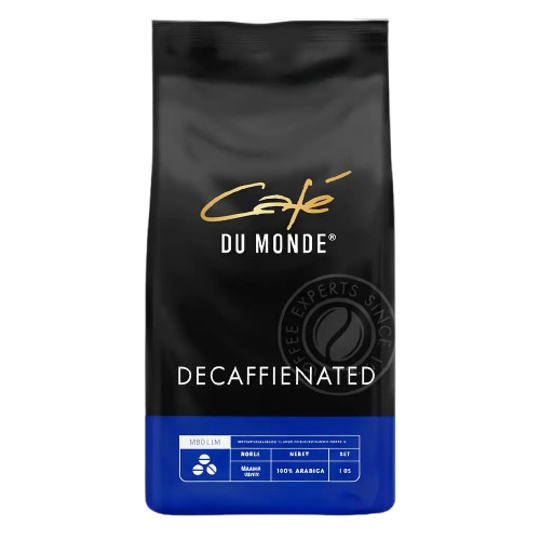

This is our 100% Arabica espresso coffee blend. It has the best Kenyan AA Grade beans for acidity, citrus notes and a chocolate after taste.
£25.65
View